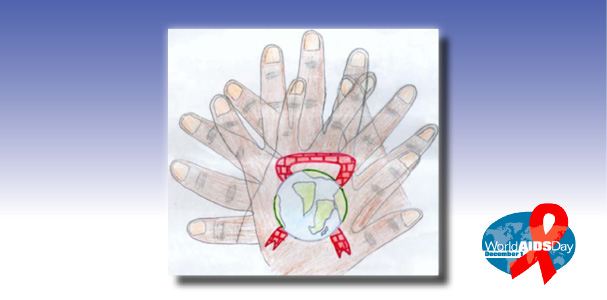Statement from the Military HIV Research Program on World AIDS Day 2011
December 1 marks the commemoration of World AIDS Day - a day to reflect on an epidemic that has affected millions of lives worldwide for three decades now and how far we've come towards an end. This year's focus and theme is "Leading with Science, United for Action."
We have entered a new era in the response to AIDS. Recent scientific achievements have brought us closer to eliminating AIDS than we have ever been. While it took a quarter of the century from the discovery of HIV to show that a vaccine is possible, the results of RV144'the landmark HIV vaccine trial that showed the first scientific evidence of vaccine efficacy'have propelled the HIV vaccine research field forward.
In 2011, the U.S. Military HIV Research Program (MHRP) announced the results of extensive follow-up laboratory studies, which provide new clues about the types of immune responses that may have played a role in the protection seen in RV144. This major scientific advance was the result of nearly two years of work by more than 100 researchers at 25 institutions. We now have a better understanding of how the vaccine may have prevented infection and a renewed scientific direction to help guide future vaccine development.
We are united in our efforts to end AIDS; not one organization can do it alone. As we move forward, MHRP's collaborators are leading a tremendous effort to identify correlates of protection. Additionally, a new collaboration'a public-private partnership called P5 that comprises MHRP, the Division of AIDS/NIAID, the Bill and Melinda Gates Foundation, Sanofi Pasteur, Novartis, and the HIV Vaccine Trials Network'is planning the next set of Phase IIb trials to build on the results of RV144 and bring us closer to a licensable vaccine product.
MHRP's commitment to ending AIDS extends beyond developing an efficacious vaccine to creating innovative programs to prevent and treat HIV through the President's Emergency Plan for AIDS Relief (PEPFAR). In 2011, our site in Uganda, the Makerere University Walter Reed Program launched the first ever mobile circumcision clinic with the ambitious goal to circumcise 6,000 men by year's end, Kenya has become a leader in the prevention of mother-to-child transmission (PMTCT) due in large part to the efforts of the Walter Reed Project, and the number of patients currently receiving antiretroviral therapy at all of MHRP's African sites'Kenya, Nigeria, Tanzania and Uganda'exceeded 100,000.
A world without AIDS seems more achievable now than any other time in history. However, not one prevention strategy alone will be the end all to this pandemic. We must maintain the momentum and commitment to both scaling up currently available and evidence-based prevention strategies and finding a long-term solution to eliminate AIDS. In the meantime, MHRP is uniquely positioned to move HIV vaccine science forward and to inform HIV prevention, care and treatment with scientific data to develop best practices and to ensure the best, most efficient practices are provided around the globe.
 An official website of the United States government
An official website of the United States government
 ) or https:// means you've safely connected to the .mil website. Share sensitive information only on official, secure websites.
) or https:// means you've safely connected to the .mil website. Share sensitive information only on official, secure websites.



